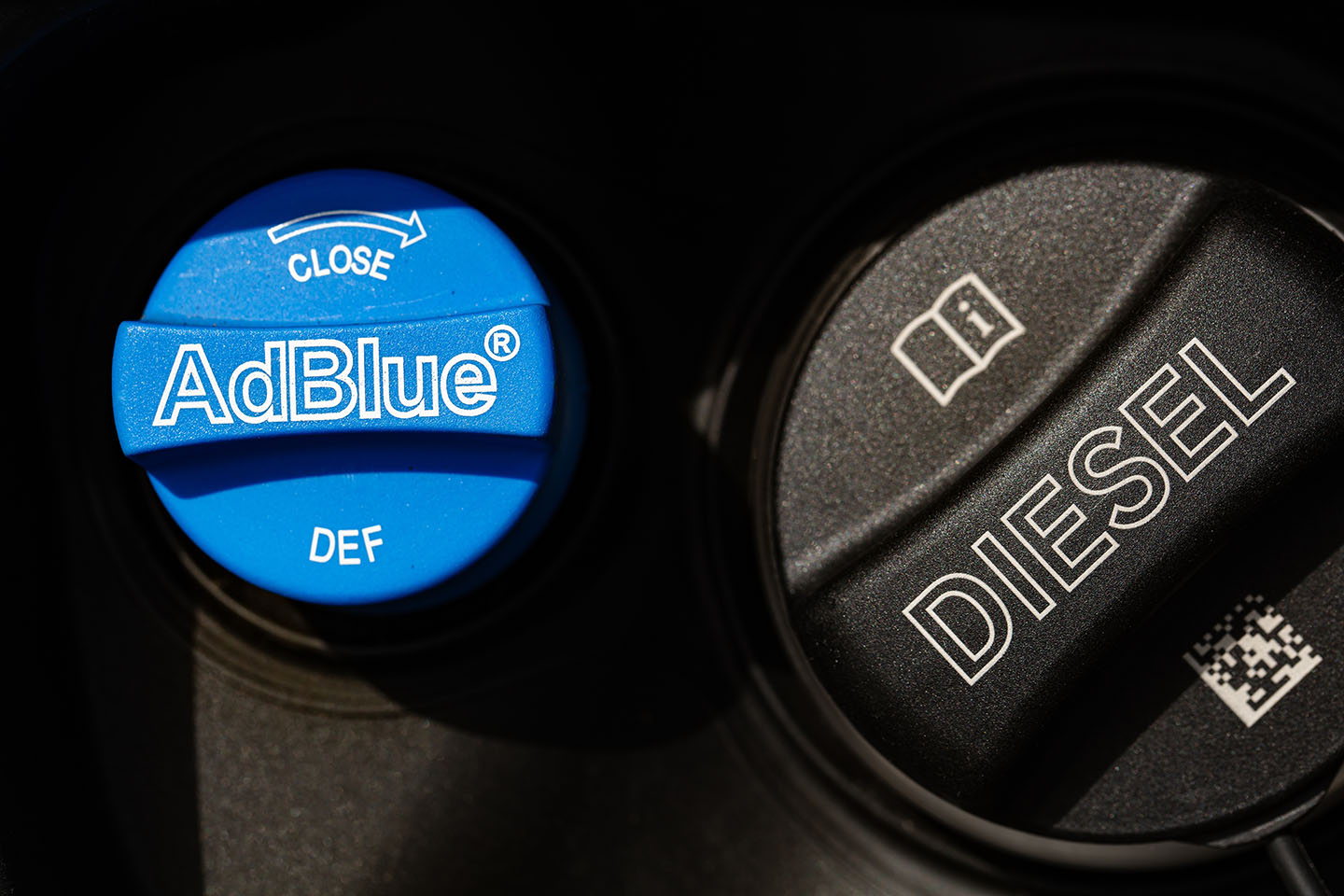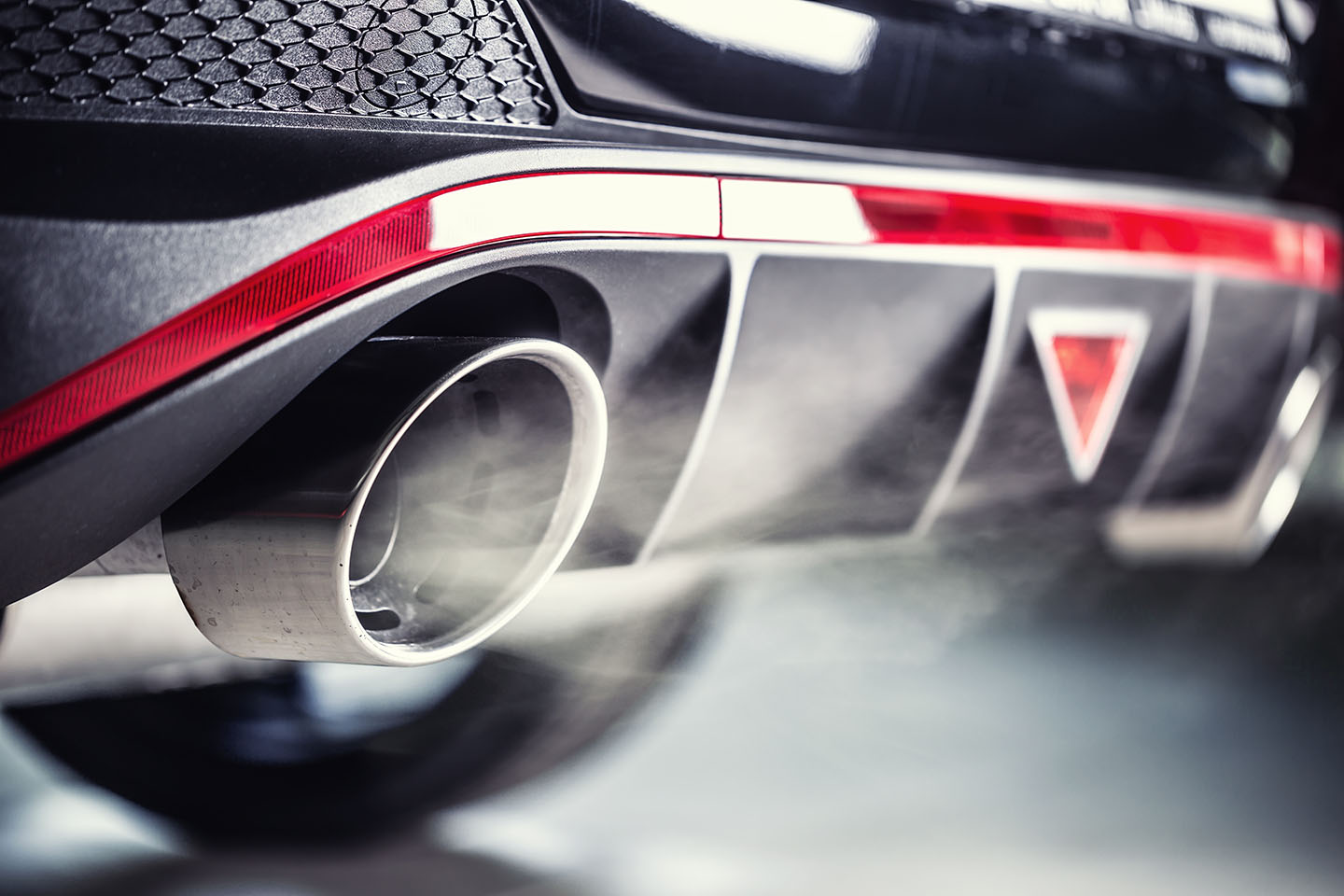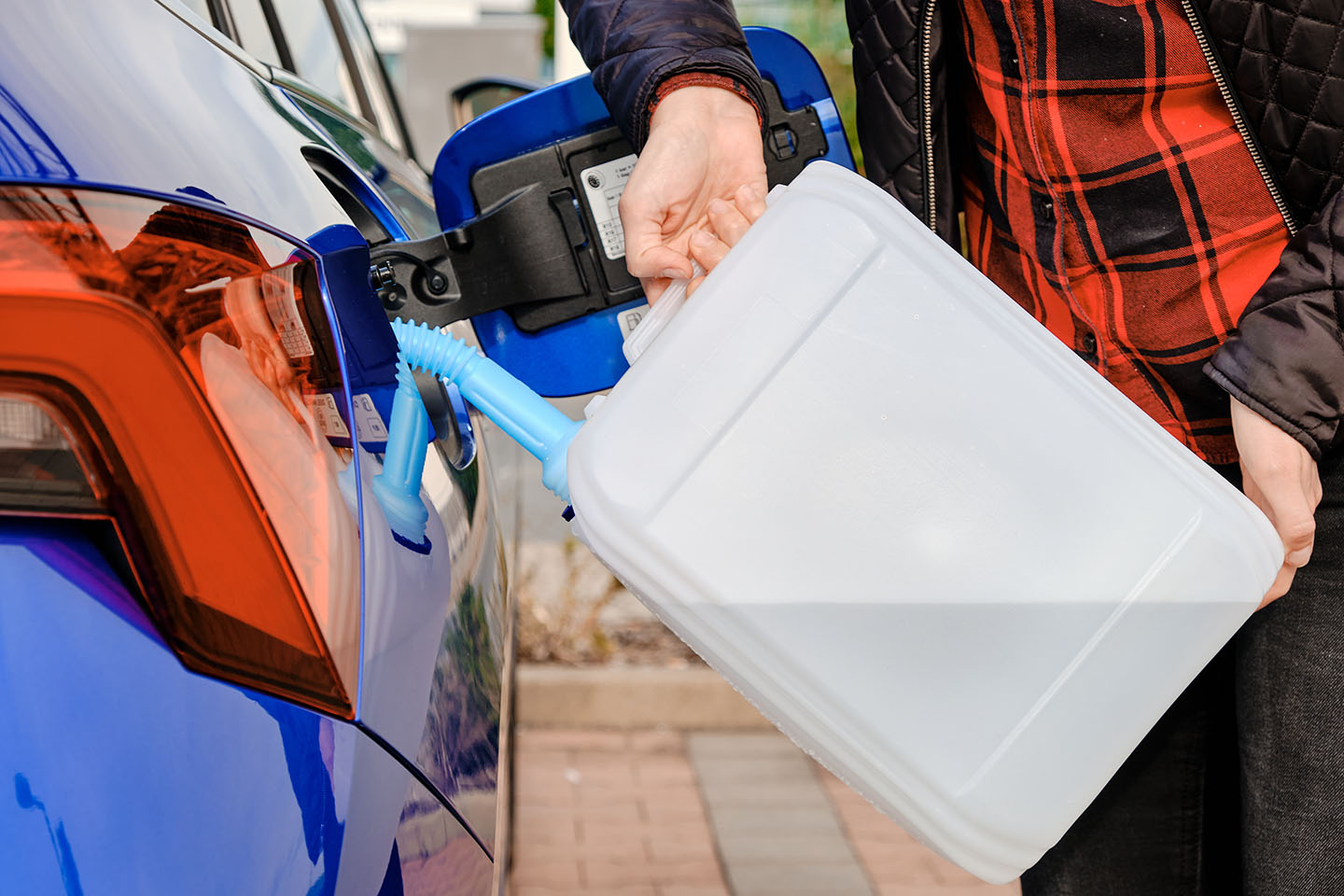What Is Diesel Exhaust Fluid?
Jan 10th 2024

Ruslan Lytvyn / Shutterstock.com
Every modern diesel needs a dash of diesel exhaust fluid. It’s one of the many products that help your engine run. But what is it, and what does it do? Diesel trucks have gone through many iterations over the last century, propelled in part by the need for cleaner, more reliable vehicles. Heavy haulers have been in the hot seat for spreading toxic gases that pollute the atmosphere. That’s why the Environmental Protection Agency (EPA) required diesel manufacturers to reduce emissions in 2010 using a process known as selective catalytic reduction (SCR). Today, all heavy-duty trucks use SCR to eliminate nitrogen oxides (NOx) from the atmosphere. Diesel exhaust fluid prevents these hazards from poisoning the air we breathe.
What Is Diesel Exhaust Fluid?
Diesel exhaust fluid (DEF) is a post-combustion treatment solution made of deionized water and concentrated urea that turns NOx into water and nitrogen to reduce emissions. The fluid mixes with the exhaust gas before releasing it into the atmosphere.
How Is It Used in Selective Catalytic Reduction?
Selective catalytic reduction has been used to reduce emissions in diesel power generators since the 1970s. According to the EPA, SCR can remove nearly 100% of NOx emissions on most diesel engines with control targets above 90%. DEF triggers a chemical reaction to convert these toxins into naturally occurring gases. So, what makes DEF so effective? Burning diesel fuel and compressed air releases NOx. What is diesel? The exhaust gas moves through a diesel particulate filter once it leaves the combustion chamber. The mesh coating collects residual soot and ash from the exhaust to prevent the particulates from clogging the exhaust.

Marian Weyo / Shutterstock.com
A nozzle then sprays DEF into the exhaust gas as it enters the catalytic converter made of metallic compounds. The reaction renders the NOx harmless by turning it into nitrogen and water. The treated exhaust is then released out of the tailpipe.
Shop All Diesel Products
DEF is a relatively simple solution to an urgent problem, but this process can quickly go awry when individual parts break down. The particulate filter needs to be cleaned and replaced every 100,000 miles or less, depending on the condition of the vehicle and how much you tow. Excess soot and ash will clog the filter and crack the housing, letting unfiltered exhaust gas pass through the SCR, which can lead to more clogs and a broken catalytic converter.
Problems can start upstream if there’s a problem with the oil supply or diesel fuel injectors. The fuel needs to release the fuel as a fine mist to ensure it burns properly. The oil pressurizes the fuel in the injectors for a more efficient burn. A lack of oil or faulty injectors will prevent the fuel from burning, leading to more ash and soot. Replace the diesel fuel injectors as power, acceleration and fuel efficiency decline to avoid damaging the SCR.
Selective catalytic reduction is only one part of the emissions reduction process. Powerstroke engines use exhaust gas recirculation (EGR) to recycle the exhaust gas through the combustion chamber. Coolant reduces the temperature of the exhaust gas to prevent overheating. EGR ups the stakes for SCR. If the exhaust gas isn’t treated with DEF, the recycled exhaust gas will spread toxins through the EGR system and other crucial components.
How to Use Diesel Exhaust Fluid
You won’t get far without enough DEF in the tank. It’s never a good idea to drive without DEF. The check engine light will come on when the tank gets low, usually at 2.5%. Once you pass this threshold, the engine will suddenly lose power, reaching no more than five miles per hour.

Vladimka production / Shutterstock.com
The engine needs between 1.2 and 2.0 gallons of DEF for every 65 gallons of fuel burned. Most trucks come with a five-gallon DEF tank, so plan to add more DEF every third or fourth time you refuel. If your SCR is clogged or the engine is going through more DEF than usual, you might have to replace the diesel exhaust system. Warning signs included reduced power and fuel efficiency.
Keep extra DEF on hand during longer trips to avoid damaging the engine and atmosphere. A bottle of quality fluid goes for just $20, which is a small price to pay when it comes to preventing long-term wear and tear. Add DEF to your list of responsibilities as a diesel driver to keep the exhaust system clean and free of toxins.
